Philippa York: Chris Froome and trying to understand the unbelievable
'We’ve either witnessed a script straight out of Hollywood or we're being taken for mugs again'
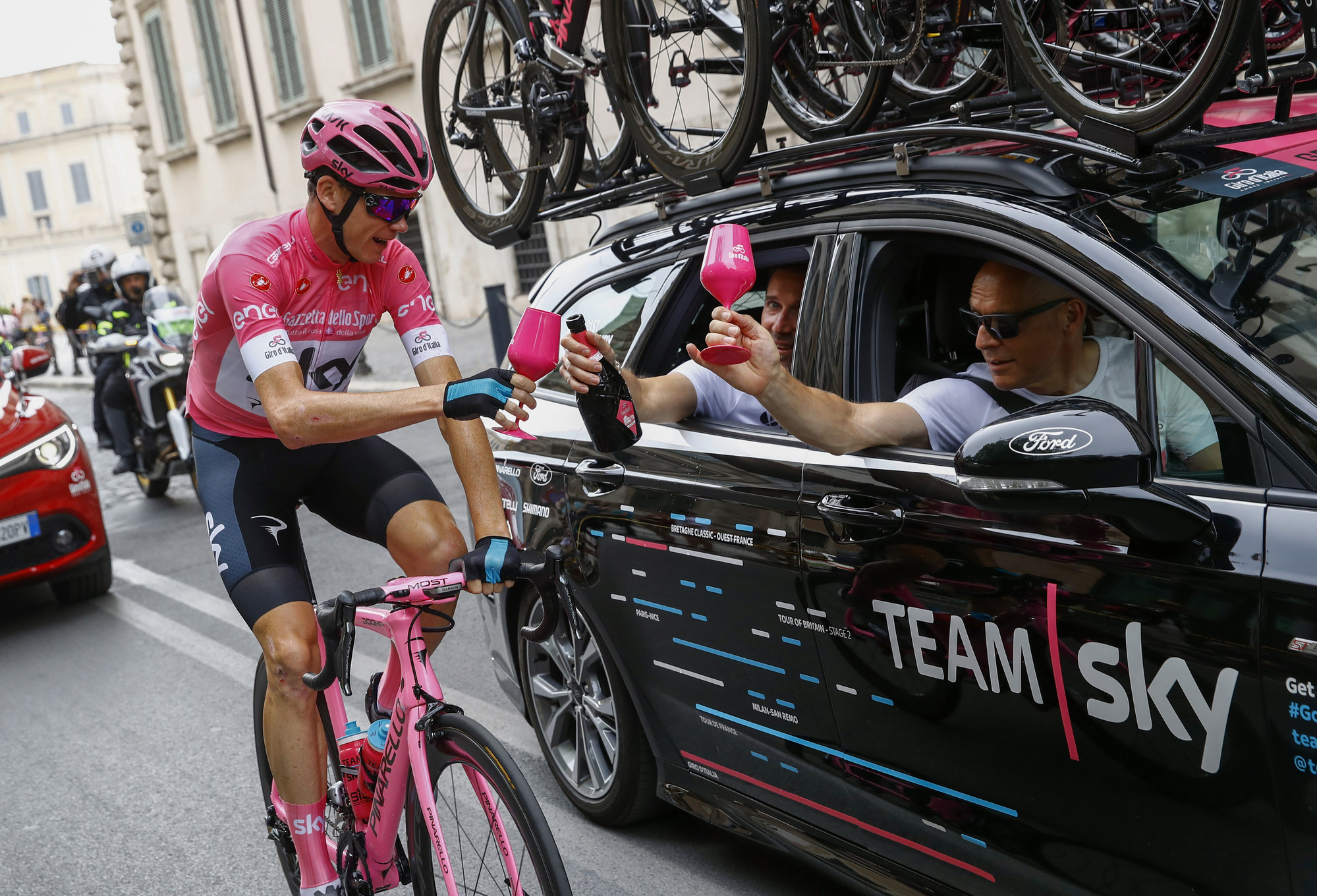
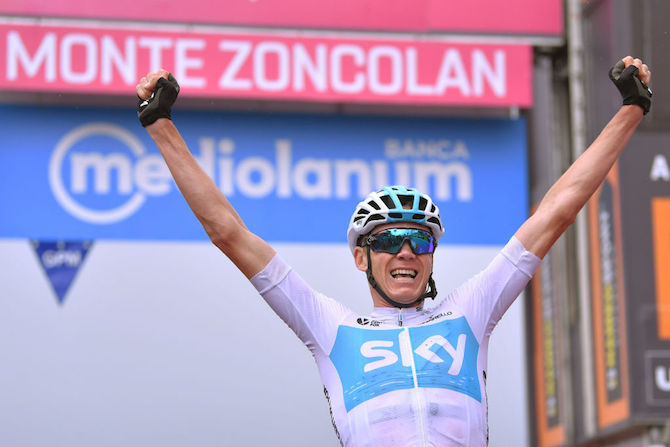
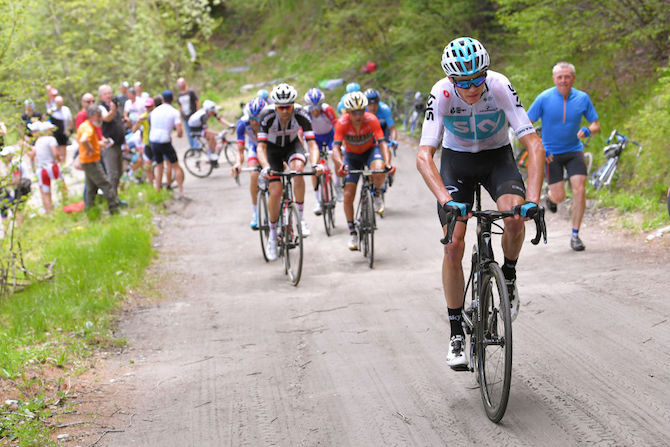
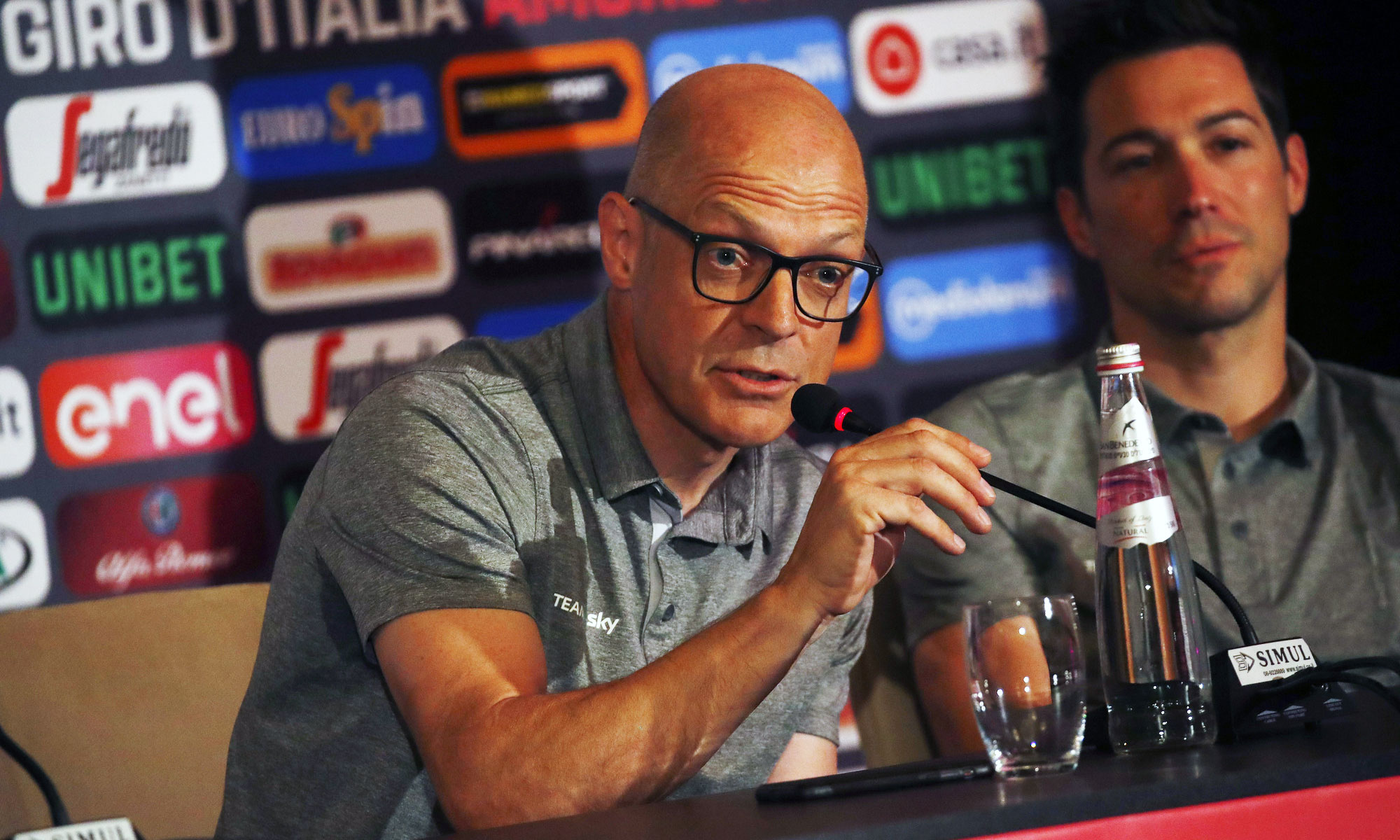
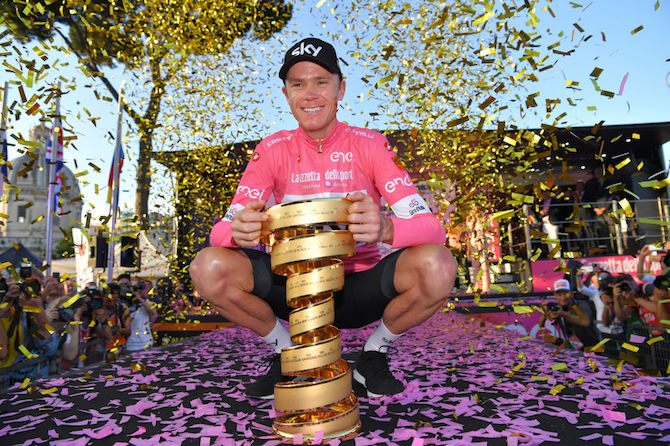
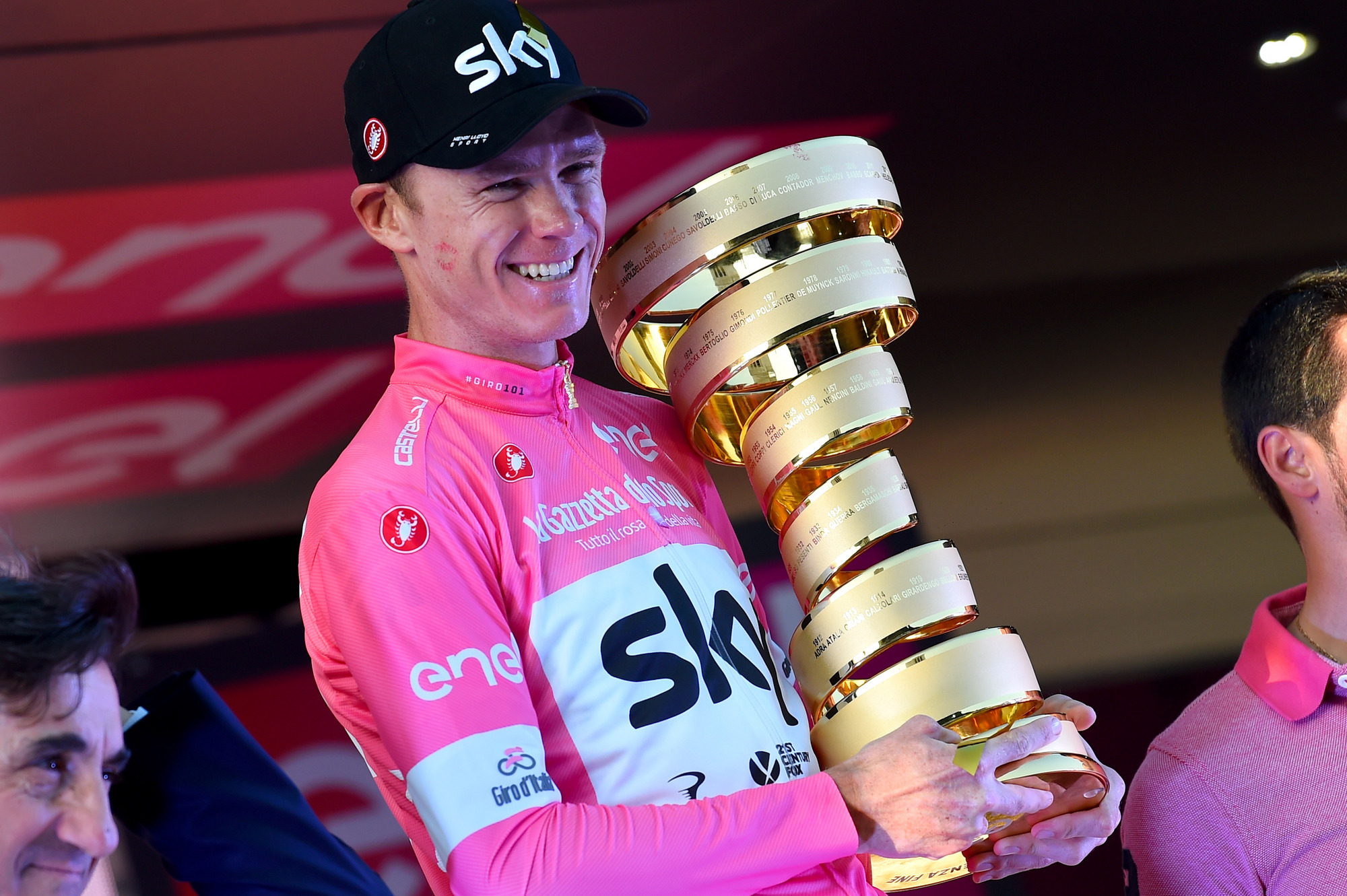
What did you think of this year’s Giro d’Italia? That’s the prominent question I’ve seen flying around over the last few days, ever since Team Sky’s and Chris Froome’s resurrection on stage 19.
Well, I watched stage 19 from Venaria Reale to Bardonecchia. I sat for hours, followed intently, and noted all the faults and tactical errors made in the pursuit of Chris Froome during his 80-kilometre solo attack, and when it was all done and dusted on Friday evening, I was left scratching my head. In fact, I’m still struggling to make coherent sense of what occurred.
That night I heard the question, ‘What do you think of the ride Chris Froome has done today?’ being posed to Sean Kelly, and his reply was the one that summed it up: “Unbelievable.”
He didn’t say amazing, or predictable, or unsurprising. No, it was ‘unbelievable’. And that sums up quite eloquently what happened. Describing an event as unbelievable becomes the only tangible way to summarise something you can’t understand, something that defies logic and has experts such as proven race winners and former pros searching for a semblance of reality. It was unbelievable.
To bring in some context, we need to take a look at the race as a whole. Froome's Giro began with a fall in Jerusalem and was followed by iffy form and calls from ex-riders like Alberto Contador for the Team Sky leader to abandon ship and concentrate on the Tour de France. As a rider, when you hear such talk you know that things are dire. That’s because Contador raced with Froome, and he knows the signs, sees the grimaces, recognises the tormented hollow face we all saw after a few of the mountain finishes, and his conclusion was that the Giro was over for his former rival. We all thought Froome would take note.
It wasn’t just Team Sky’s leader who appeared to be struggling; none of his teammates were remarkable, either. But when the race hit the Zoncolan on stage 14 we saw the return of the manic twiddling of a tiny gear from Froome as he rode away from the strongest guys in the race. Up until then we’d seen Froome’s high cadence but it had only been matched by his consistency with going backwards. From nowhere, all that changed on the hardest climb of the race, and even the revelation of this Giro, Simon Yates couldn't close the gap. That performance was slightly believable because as a rider you can hurt yourself over and above the norm with a big effort but you pay over the next days, and that's exactly what happened on the stage to Sappada. Froome was human again and suffering from what was, in every rider’s words, a brutal race.
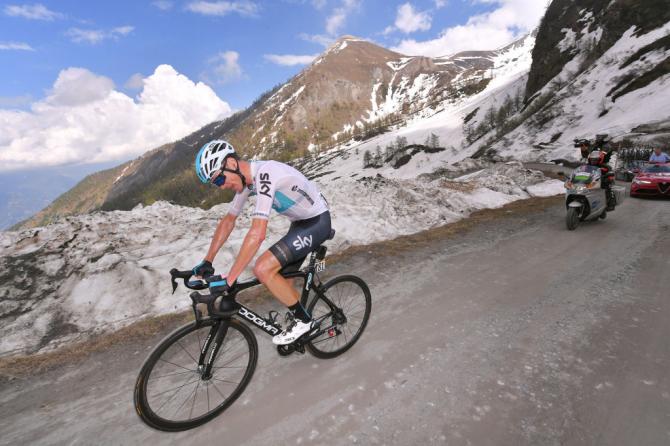
Now, despite what anyone says, you don't ride yourself into form in a brutal three-week race. If you aren't in good shape at the start, the kicking you get each day adds up and you only become more and more tired. Add a fall – or in Froome’s case two falls – or injury of any kind and your recovery is highly compromised. Hence the comment from Contador that it was over for Sky's hopes. He saw the signs and understood the situation.
Get The Leadout Newsletter
The latest race content, interviews, features, reviews and expert buying guides, direct to your inbox!
Up until stage 19 I was watching all this and thinking the real reason Froome couldn’t abandon was because this might be his last Grand Tour for a long while. With his salbutamol case having over his head, a possible ban could last six months, or a year, and my rationale suggested he was racing to simply increase his public exposure. There wasn't one person outside of Sky who seriously thought the GC situation was retrievable at the start of the third week.
The time trial after the final rest day saw a return to form for Froome but that could be explained by his talent for that type of effort. Now, maybe us old codgers know nothing of marginal gains cycling but, again, there's the incongruence of how he pulls a big gear round in time trials compared to his pedal speed uphill. The TT specialists can turn a massive gear quickly and they try to spin a tiny gear on steep hills to limit the hurt, but they aren't going over mountains in the front using that style.
In comparison, Bradley Wiggins rode a small gear uphill but he also pedalled at a similar speed in the time trials, so that kind of made sense. With Froome, there's no recognisable connection between the power used in each discipline.
The Giro, meanwhile, rolled on and Simon Yates was in control, clearly the strongest climber and riding exceptionally well. As an emerging talent who always rode aggressively, things looked normal. That a crack appeared in the young Lancastrian’s armour on stage 18 was also predictable, but no one saw his collapse on stage 19 coming, and no one believed that it would be caused by Team Sky setting an infernal pace on the Colle de Finestre. They had done that so many times previously in Grand Tours but up until stage 19 their Giro collective was rather conspicuous by its absence. Suddenly the race was lined out with Team Sky on the front and then there was the attack by Froome 80km from the finish – à la Contador if you like, except this is Froome and he has never ridden old-school. He's not Coppi, Merckx, or Hinault. Modern racing doesn't do long range individual aggression.
That a four-time winner of the Tour de France pulls it off shouldn't be a surprise but it is in this case because, discounting the Zoncolan, he'd lost time on almost every mountain finish. He hadn't won the TT and he hadn’t been in remarkable form. Far from it. So when Kelly says it's unbelievable, he's right. Not just in the context of the ride being spectacular, which it was; no, what he really means is he, Sean Kelly, former world number one and seasoned commentator to boot, has never seen such a return from the dead as the one Sky pulled off on the road to Bardonecchia.
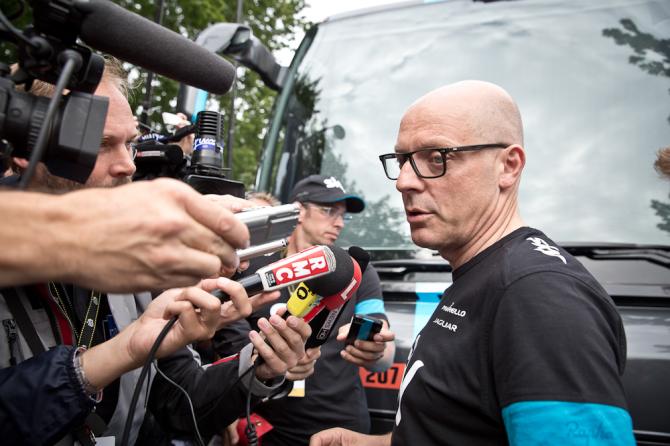
The performance that day was unbelievable in the context it must be viewed in. After all the scandals, from Shane Sutton saying that Team Sky gamed the TUE system, to the stock of Kenalog, Jiffy bags, lost medical records, the DCMS report, UKAD's investigation, testosterone deliveries, Tramadol use, and a win-at-all-cost culture, Froome’s ride could only lead us to ask questions.
I try not to be cynical about the sport but its history of morals and ethics hasn’t been great, so when you see simple questions from government committees or the cycling media avoided by the likes of Team Sky and their management, there's little benefit of the doubt that can be applied.
Ask me what I think of the last three weeks and I'll say I honestly don't know what happened. The only people who really know are the same ones who got themselves into the salbutamol mess, and that affair lingers over Team Sky like a bad smell. The data, the miraculous recovery, and the answers you all seek are with them.
Sure, RCS got the media coverage they craved by having Froome at the race but that came at the expense of their own credibility and incurred the wrath of many. Yates restored a lot of faith in the sport with his ride, as did Tom Dumoulin and even the guys who fell apart, because they all seemed normal in the light of a tough route.
Stage 19 ended all that with the nuances of all the previous Team Sky mishaps and the debate as to whether Froome should have been on the start line at all. That's why the Tour de France probably won't want Froome at their race, as the fallout might just be waiting to happen.
After Lance Armstrong, the Tour organisers probably aren't willing take such a risk but the Giro has, and we’ve either witnessed a script straight out of Hollywood or we are being taken for mugs again and the story, as it did with Armstrong’s, will appear in an episode of South Park. I just hope it's not the latter.
Philippa York is a long-standing Cyclingnews contributor, providing expert racing analysis. As one of the early British racers to take the plunge and relocate to France with the famed ACBB club in the 1980's, she was the inspiration for a generation of racing cyclists – and cycling fans – from the UK.
The Glaswegian gained a contract with Peugeot in 1980, making her Tour de France debut in 1983 and taking a solo win in Bagnères-de-Luchon in the Pyrenees, the mountain range which would prove a happy hunting ground throughout her Tour career.
The following year's race would prove to be one of her finest seasons, becoming the first rider from the UK to win the polka dot jersey at the Tour, whilst also becoming Britain's highest-ever placed GC finisher with 4th spot.
She finished runner-up at the Vuelta a España in 1985 and 1986, to Pedro Delgado and Álvaro Pino respectively, and at the Giro d'Italia in 1987. Stage race victories include the Volta a Catalunya (1985), Tour of Britain (1989) and Critérium du Dauphiné Libéré (1990). York retired from professional cycling as reigning British champion following the collapse of Le Groupement in 1995.
